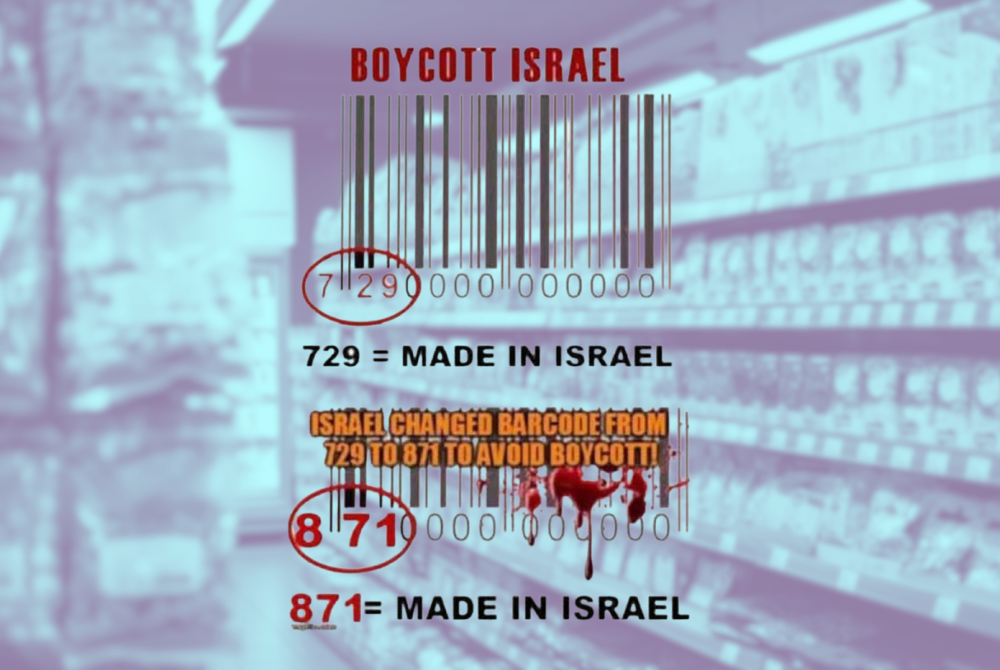Did Israel really change its barcode from 729 to 871?

SHAH ALAM – Of late, rumours has it that Israel has changed its country’s barcode from 729 to 871 in the midst of an ongoing worldwide boycott over the country which had been terrorising the Palestinian land.
The claim was first made by X user @lastvibes with the intention to create awareness for the public to continue their boycott of Israeli products.
“Israel just now changed its barcode from 729 to 871. The barcode changed due to the public’s boycott of Israeli products.
“Please share and publish so that everyone can benefit,” the post read.
However, the Ireland Palestine Solidarity Campaign has since said that a country could not simply change its barcode assignation because it feels like as barcode assignation was a complicated and regulated international process.
“Israel has not changed its barcode to 871 or even 500 in order to defeat the boycott.
“A barcode only tells you which country a company is from, not where the contents of the product originated.
“What appears to be happening is that the 871 is the Dutch barcode (and 500 is the UK one) and Israeli products are being sold by Dutch and UK (and even Irish)-based companies.
“This is just another reason to always look for the country of origin of a product and not rely solely on barcodes,” the statement read.
Similarly, it said that some things made in a third country might be sold by Israeli-registered companies with the 729 barcode, even though they may say (eg) ‘Made in Taiwan’ on the packaging.
The global boycott of Israeli products aimed to put pressure on the occupant to comply with international law and to persuade private companies to end their participation in Israel’s crimes.
The Israeli economy was dependent on international trade and investment, making it especially susceptible to international economic boycotts.
The boycott of the products had been ongoing but it had intensified since the bombing campaign on Gaza since Oct 7, following Hamas’ operation.
Malaysia had also been one of the countries that publicly expressed its boycott on the products, including well-known brands used by many in the country.
It was also reported that the colonisation that had plagued Palestine shattered many of Israeli Prime Minister Benjamin Netanyahu's optimistic projections as its economic activities had taken a significant hit.











